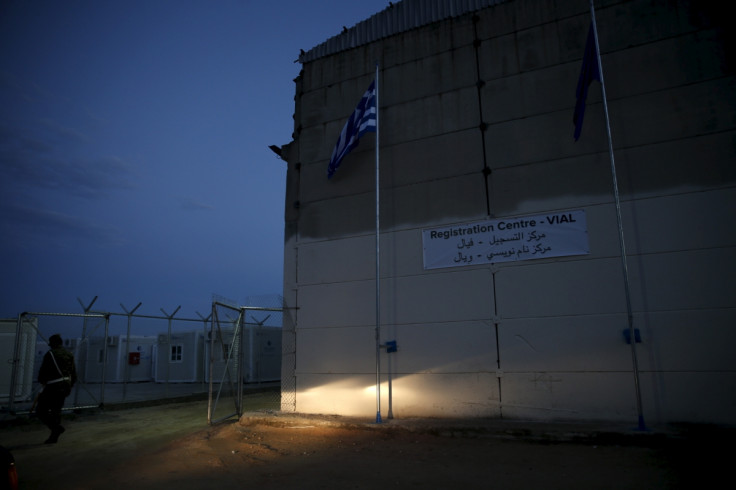Greece: Hundreds of refugees and migrants break out of camp just days before deportations begin

Hundreds of refugees and migrants on the Greek island of Chios have broken out of a holding centre. The action came just days before an EU deal to send rejected asylum seekers from Greece to Turkey was scheduled to begin.
Under the terms of the agreement, people arriving after 20 March are to be kept in detention centres located on five Aegean islands, including Chios, Samos, Lesbos, Kos and Leros. They will be returned to Turkey if their application for asylum is denied. Deportations are set to begin on 4 April.
According to a police spokesman for the northern Aegean region, around 300 people broke out of the detention centre – tearing down part of the razor wire fence encircling the site – and headed towards the port. Videos of female and child refugees and migrants walking on the road with their belongings began surfacing on Greek websites soon after.
On 31 March, violent clashes broke out between Syrians and Afghans at the overcrowded detention centre. During the conflict, windows were smashed and 10 people sustained injuries, although they are not reported to be serious.
"They say that they don't want to go back to Turkey and that they are afraid for their safety after clashes between migrants in the hot spot," a police official said. "The police tried to persuade them to return back but they refused and are now walking to the port of the island."
Grave concerns over the legality of the EU-Turkey refugee deal have been raised by human rights campaigners, who claim that Ankara had been deporting hundreds of refugees back to Syria over the past few weeks. The UN Refugee Agency (UNHCR) has called for brakes to be applied to the deal until "all safeguards are in place before any returns begin."
On 1 April, Amnesty International released a report exposing the "fatal flaws" in the refugee deal following the "large-scale forced returns of refugees from Turkey to war-ravaged Syria", which are illegal under Turkish, EU and international law. The human rights organisation's Europe and central Asia director, John Dalhuisen, said: "In their desperation to seal their borders, EU leaders have wilfully ignored the simplest of facts: Turkey is not a safe country for Syrian refugees and is getting less safe by the day.
"Far from pressuring Turkey to improve the protection it offers Syrian refugees, the EU is in fact incentivising the opposite," he added.
© Copyright IBTimes 2025. All rights reserved.






















